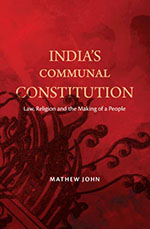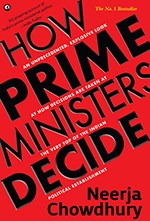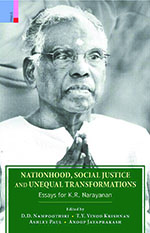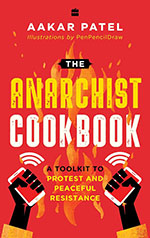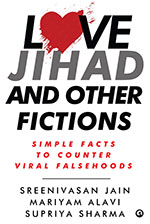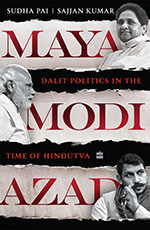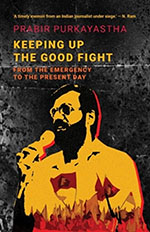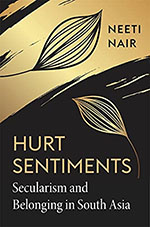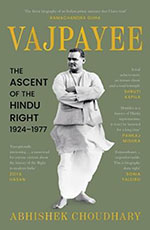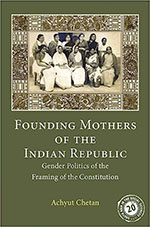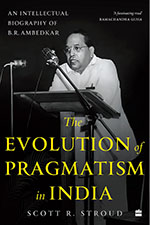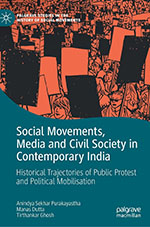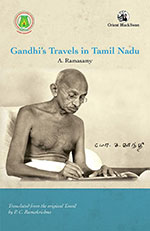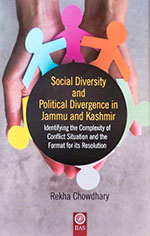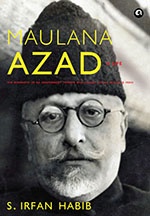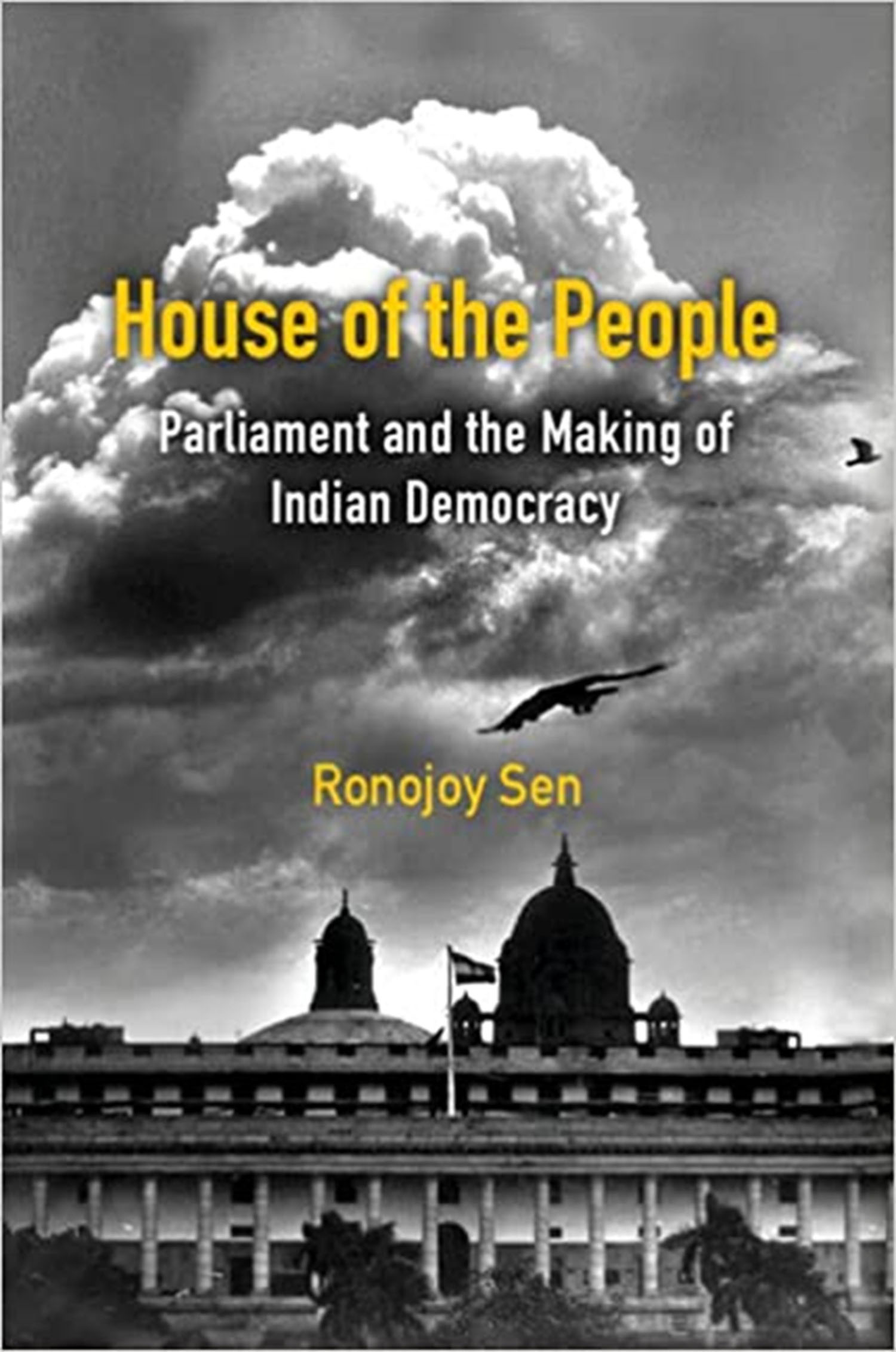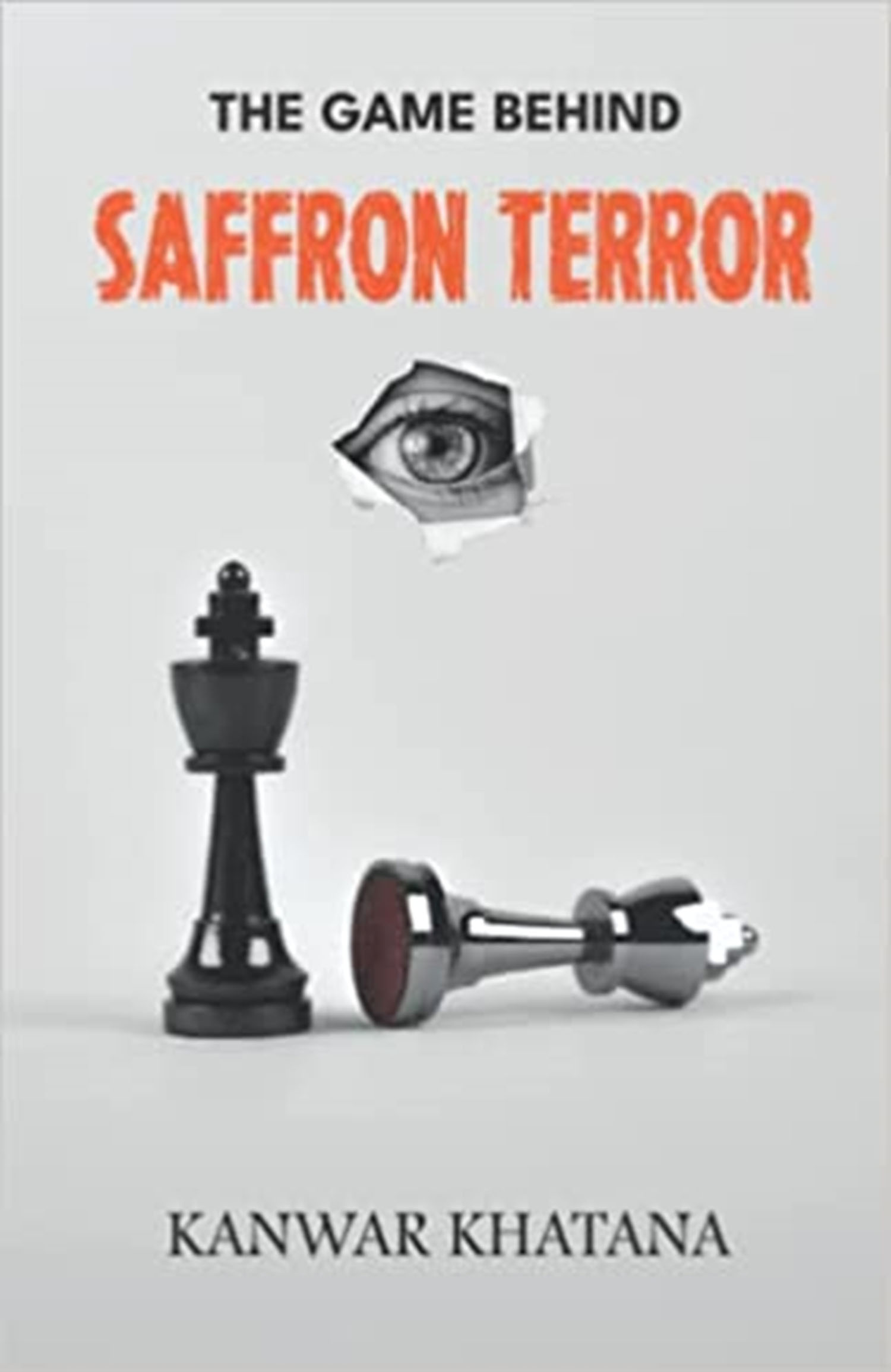Politics
This brings us to John’s fourth issue in the book, that of caste; in discussing the Indian caste system in the fourth chapter, John contrasts the sociological and sacral conceptions of caste. He refers to Marc Galanter’s framework, which had put forward three models of caste—the sacral, sectarian, and associational models. Whereas the sacral conception of caste sees the different castes in India ‘as constituent parts of a unified Hindu religious order’
Beginning with a well-analysed nineteen-page Introduction, raising and underlining several issues and processes relating to the office of the Prime Minister, she quotes Atal Bihari Vajpayee saying, ‘The higher you go, the more lonely you are.’ This sets the tone of the analysis that shows a Prime Minister as a human, who attempts to survive amidst competing pressures, aiming to triumph politically. In the process, a VP Singh ends up changing the politics of the country for all time to come despite a short tenure.
The author has attempted to provide a general theory of nasty politics across contexts. He contends that despite the differences in the three aforementioned contexts, the rationale behind employing nasty politics is essentially the same. In all of these contexts, name-calling and insults are usually more acceptable than provocation and intimidation.
2023
The ‘unity talks’ between these political groups envisioned the Hyderabad State as a single political unit within the Commonwealth of India. However, as Mantena explores the frictions between regional autonomy and national freedom further, the Hyderabad State administration saw these assertions by the political groups as attacks on its ‘historical identity as an inheritor of Mughal legacy in South Asia’. Along with overtly political groups asserting their political ambitions
This volume is a reflection upon the idea of a democratic, secular and inclusive India which KR Narayanan cherished. His rise as a Dalit boy from Travancore to India’s presidency embodied these values.
Divided into seven different sections that are modelled on a cookbook, Patel begins the first section by unpacking the nuts and bolts of the state, highlighting the remnants of the colonial past that continue to haunt the present. A major section of the book is about foregrounding the contradictions entailed in the Constitution and the actual workings in the everyday.
The book’s four chapters examine four widely held social media theories in detail. Terms such as ‘Love Jihad’, ‘Population Jihad’, ‘Forced Conversions’ and ‘Muslim Appeasement’ have made their way into our everyday conversations. This book forces us to look closely at these words that have infiltrated our quotidian conversations and pushes us into asking the right questions.
The Supreme Court of India put the sedition law on hold, suspending pending criminal trials under the section, and asked the Union to reconsider the British era law, which was a paranoid response to the 1857 rebellion,
Maya, Modi, Azad is focused on Dalit politics in Uttar Pradesh (UP), critically examining the decline of the Bahujan Samaj Party (BSP) after its dramatic loss of power in the 2012 Assembly elections.
Purkayastha’s view is singular, having first been jailed during the 1975 Emergency and then again in October 2023 under the Unlawful Activities (Prevention) Act when he and his NewsClick colleague Amit Chakravarty were arrested. Alongside the arrests, the residences of several journalists and people associated with NewsClick were also raided.
Purkayastha and Chakravarty continue in jail.
In beginning her book by repeatedly invoking the image of Gandhi’s prayer meetings as a counter to the violence of the Partition, the author is emphasizing a conception of secularism that many others have noted as specific to South Asia. At these prayer meetings,
There are very few political leaders in India whose initiation and evolution in the country’s political life would lead to an understanding not merely of the leader
This book details the debates on some of the key issues in the Constituent Assembly and the interventions made by the members who were women. (It repeatedly refers to them as women members, this is at odds with the current practice that eschews such ways of referring to people as lady doctors or women cricketers and so on.) Of these issues, the author attaches considerable importance to the question of separate and joint electorates.
Scott R Stroud succeeds in arguing a Deweyan Ambedkar: Did Ambedkar have one intellectual interlocutor throughout his life? Was Ambedkar’s world mediated through Dewey? It is however a well-argued book, theoretically rigorous which systematically conceptualizes Ambedkar’s pragmatism.
Identifying the core areas and patterns, the authors set out to unravel the contemporary context of mediatization of public life leading to the emergence of media-public or info-public. New keywords like Twitterati, WhatsApp-publics, Media public, Info public, though coming to limelight, mediatized public sphere continues to follow the ‘pre-existing grammar of political mobilization’
As is well known, after his return to India in 1915, Gandhi launched the noncooperation movement in the 1920s and the civil disobedience satyagraha in the 1930s. These were the decades when the loin cloth-clad Gandhi was viewed as a bit of a rustic rockstar by the people of Tamil Nadu. Wherever Gandhi travelled in the old Madras State, people would get wind of his whereabouts and proceed to mob him in hundreds or thousands.
The merit of the study is that it breaks the stereotype of the analysis of the State’s contemporary politics from a myopic view of religious identity.
Despite several biographical works on Azad, a definitive biography was still awaited because the previous biographers had not explored adequately the Urdu writings of Azad and other such sources. This new biography by S Irfan Habib, a Delhi-based historian with a firm grasp on the Urdu language attempts to fill the gap by uncovering some of the enigmatic aspects of Azad’s life, thought and politics. In doing so, he has made extensive use of Azad’s works in Urdu and brought to the fore the enriching and curious facts associated with him.
The Indian Parliament completed 71 years during April-May 2023. The study of the institution, which began soon after the publication of Parliament in India by WH Morris-Jones in 1957, a classic till today, is still a work in progress, as is Indian democracy. There have been authored studies and edited volumes on the Indian parliament with rich material.
The term ‘Saffron Terror’ was coined almost two decades ago in 2002 and gained popularity in 2007-2008. At times, terms like Hindu terrorism or Hindutva terror are also used instead, allegedly to describe acts of violence motivated by Hindu extremist nationalism. In all probability, the term comes from the symbolic use of the saffron colour by most of the temples in India and many Hindu nationalist organizations.

